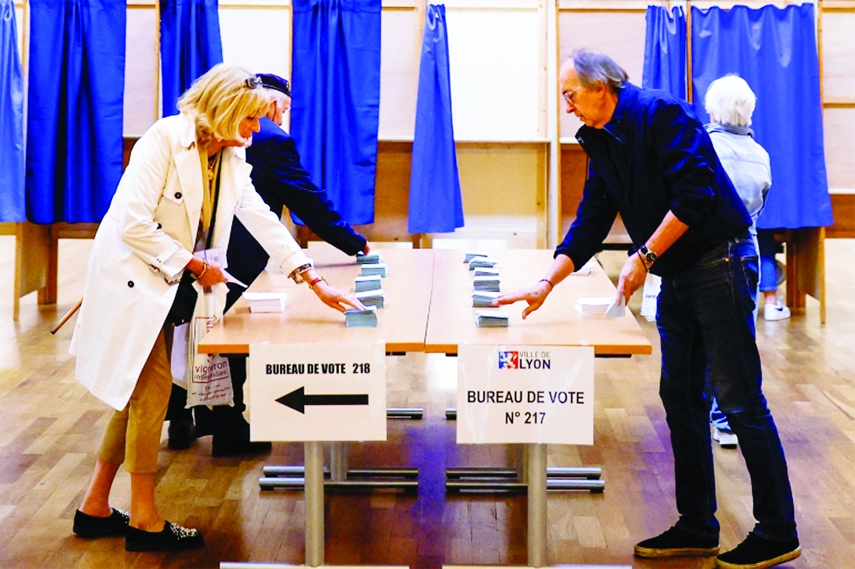
News Desk :
French voters are heading to the polls to decide whether to give centrist Emmanuel Macron five more years as president or replace him with far-right candidate Marine Le Pen, reports BBC.
After a divisive election campaign, Ms Le Pen faces an uphill battle with her 44-year-old opponent polling ahead.
In order to win they both need to attract voters who backed other candidates in the first round.
But these are two polarising figures in France and abstention is a key factor.
Mr Macron’s detractors call him arrogant and a president of the rich, while the far-right leader has been accused of having ties to Russian President Vladimir Putin.
Some 48.7 million people are eligible to take part and by midday (10:00 GMT) turnout was down on five years ago at 26.4%, but not as low as in the first round two weeks ago. First projections of who has won will come at 20:00.
Marine Le Pen was first of the two candidates to vote, which she did in her stronghold in Hénin-Beaumont. As she arrived, she sheltered a baby boy from the sun and told him: “I will protect you.”
Mr Macron voted later in the northern resort of Le Touquet alongside his wife, Brigitte. He rose to power on a whirlwind promise of change, but many complain they are yet to see it.
His presidency has been buffeted by protests, the Covid pandemic and now the rising cost of living.
Marine Le Pen, meanwhile, has learned from the mistakes she made when she was resoundingly beaten by the same opponent in the second round in 2017. This is her third tilt at the presidency and if she fails it could be her last.
The great unknown in this election is how many voters will refuse to back either candidate, whether by casting a blank ballot or not turning out at all. Much of France is on holiday and turnout in parts of Paris appeared to be lower than usual.
The campaign has been short but the choice for voters is clear, between a pro-European sitting president and a nationalist candidate who seeks to ban the headscarf and restrict immigration.
Whatever the result, Mr Macron will address voters on Sunday evening from a stage at the foot of the Eiffel Tower.
Al Jazeera adds: French voters are casting their ballot in the presidential runoff to choose between centrist incumbent Emmanuel Macron and far-right politician Marine Le Pen.
Opinion polls suggest that Macron, 44, has a solid lead, but analysts have cautioned that low turnout could sway the outcome in either direction. About 48.7 million
citizens are eligible to vote.
Polling stations opened at 8am (06:00 GMT) on Sunday and close at 7pm (17:00 GMT) in most places, apart from big cities which have chosen to keep stations open until 8pm.
Macron’s popularity has taken a beating since 2017, but the war in Ukraine steadied his chances of re-election, particularly in light of the renewed Russian offensive in the East.
Marine Le Pen’s dogged focus on inflation and the cost of living have seen her perform better than in 2017.
Unlike previous elections where immigration, religion-versus-secularism and identity were front and centre, this election has been fought on two principle issues, purchasing power and security.
Le Pen has focused hard on the feeling that the voters’ money buys less: almost 70 percent of voters say their purchasing power has decreased under Macron’s first term.
Security and the ongoing war in Ukraine are other issues playing a key role in voters’ decision-making. They are seen as Macron’s strong point who did not spare an attack on Le Pen’s close ties to Russia during the presidential debate on April 20. Macron also bitterly opposed her plan to make it illegal to wear the Muslim headscarf in public.
Polls have consistently predicted that Macron will win a second term. The race tightened during the first round of election, but he appears to have pulled away since then. They now suggest a Macron victory around the 56-44 percent range.

